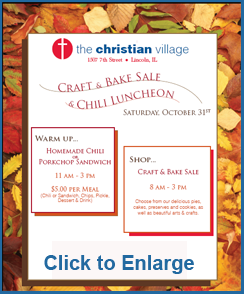 It seems like common sense, but is amazing how much time and money
is spent simply trying to convince our population to get on board
with this worldwide project. It seems like common sense, but is amazing how much time and money
is spent simply trying to convince our population to get on board
with this worldwide project.Our small town only recently began a
recycling program where the trash man would pick up all recyclable
material in the same bin. You don't have to separate it by type.
This is good because I'm almost certain that I could not possibly
fit five trash cans under my sink. I'd need one for every category:
paper, plastic, glass, aluminum and non-recyclable trash.

I'd have to hide them all over my kitchen.
"Honey, where are we putting the aluminum cans this week?"
"In the potato bin."
"Where are the potatoes?"
"We ran out."
"Where do the glass jars go?"
"The crisper drawer in the refrigerator."
"Hmm... No fresh vegetables this week either, huh?"
"I was thinking we could go out for dinner this week."
So, yeah, putting all the recyclable material in one bin is the
best option. However, to my way of thinking, this means that there
is somebody at the other end of the line who has to separate them by
hand. It was OK when I thought a big machine and a couple of
bulldozers were processing the recently acquired garbage, but now I
had to think about that guy wading through my recyclables and
judging whether they are worthy.

A paper plate is certainly recyclable, but what if that paper
plate had peanut butter on it? As far as I know, peanut butter is
not on the recycling list. So does the plate go in the recycling bin
or not? If I toss it in there indiscriminately, is the recycling
judge going to be calling me a moron in seven different languages?
Perish the thought!
[to top of second column] |
 I'll simply wash my paper plate before I toss it in the recycle
bin. This, of course, negates the purpose of paper plates, which is
playing right into environmentalists' plans. Why cut down trees in
the first place if you're going to wash your paper plates anyway?
I like trees as much as the next guy, but sometimes, I just don't
want to wash dishes. In that argument, the tree loses.
Now, if we could engineer a tree that grew plates, we wouldn't
have to cut it down. We could just go around picking plates off our
trees, and since they'd be organic, we could simply toss them in the
garden when we're done eating... even if there was peanut butter on
them.

I worry about things like whether the cap on the milk jug is the
same kind of recyclable plastic as the jug. Can you recycle colored
newspaper as well as black and white? If a glass jar has a paper
label, do you have to separate the two? Is used Kleenex recyclable?
If only I could simply leave it to the recycling judge to figure
all that out. I want to be responsible and a good steward of the
planet, as I suspect many people do. At the same time, I have an
unhealthy empathy for the nameless recycling judge. I was taught
that our actions can sometimes cause adverse consequences for other
people and, apparently, the planet. I don't want to make the
recycling judge's job even harder, and I don't want him to think
badly of me.
So, like most people, I'll simply do the best I can and hope that
the recycling judge will understand.
[By LAURA SNYDER]
Laura Snyder is a nationally syndicated columnist,
author and speaker. You can reach her at
lsnyder@lauraonlife.com
or visit www.lauraonlife.com
for more info.
 |